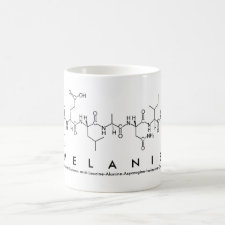
Authors: Tovar GEM, Krauter I, Weber A, Dettling M, Brunner H
Article Title: Molecularly imprinted nanospheres as synthetic affinity material for biotechnical application.
Publication date: 2002
Journal: Abstracts of Papers of the American Chemical Society
Volume: 224
Issue: (COLL)
Page numbers: 364.
Alternative URL: http://www.chemistry.org/portal/resources/ACS/Subportals/colloid/COLL1-380.pdf
Abstract: Molecular imprinting is a method to produce specific binding sites in synthetic polymers (MIP). Intrinsically, a highly crosslinked polymer network is needed for this method, thus presenting a material which cannot be further processed easily. A controlled preparation of nanoscopic MIP allows to overcome this limitation. Here, we present the preparation and characterization of nanoMIP by miniemulsion polymerization. Poly(methacrylic acid)-co-(ethylene glycol dimethacrylate) particles were synthesized in presence of various amino acid derivatives as molecular templates. Coagulate-free and stable latexes were obtained in a yield of 98 ± 2 %, which were characterized by surface tension measurements, gravimetric analysis, dynamic light scattering, TEM, 1H- and 13C-CP-MAS-NMR, and BET. The efficiency of the imprinting process was quantified by ligand binding experiments, showing best selectivity if a molar ratio of MAA/EGDMA of 0.25:1 is used. The nanoMIP can be used for molecular recognition both in suspension as well as deposited at a surface.



Join the Society for Molecular Imprinting

New items RSS feed
Sign-up for e-mail updates:
Choose between receiving an occasional newsletter or more frequent e-mail alerts.
Click here to go to the sign-up page.
Is your name elemental or peptidic? Enter your name and find out by clicking either of the buttons below!
Other products you may like:
 MIPdatabase
MIPdatabase









